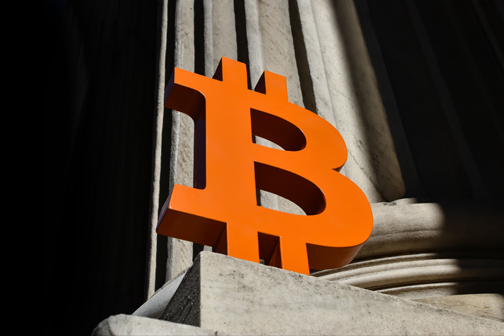Crypto Companies, Investors Await Looming Regulations and Litigation Resolutions
 A staggering decline in value is not the only recent source of significant concern for cryptocurrency companies. In remarks made at the annual meeting of the Financial Industry Regulatory Authority (FINRA) earlier this month, the chair of the U.S. Securities and Exchange Commission (SEC) confirmed that the SEC, in tandem with other federal agencies, intends to step up its regulation of the crypto industry. SEC Chair Gary Gensler said “a lot needs to be done” in the categories of oversight and regulation of cryptocurrency.
A staggering decline in value is not the only recent source of significant concern for cryptocurrency companies. In remarks made at the annual meeting of the Financial Industry Regulatory Authority (FINRA) earlier this month, the chair of the U.S. Securities and Exchange Commission (SEC) confirmed that the SEC, in tandem with other federal agencies, intends to step up its regulation of the crypto industry. SEC Chair Gary Gensler said “a lot needs to be done” in the categories of oversight and regulation of cryptocurrency.
Gensler disclosed that securities regulators are in ongoing discussions with the U.S. Commodity Futures Trading Commission (CFTC) that are focused on distinguishing between crypto tokens that resemble commodities and those that should be classified as securities. The objective, he added, is to fill a void, given that crypto platforms currently lack many of the safeguards of registered exchanges. From the SEC Chair’s perspective, “the investing public is not that well protected. We're going to continue to be a cop on the beat. We're going to continue to use our limited resources as best we can to help protect the investing public."
He also expressed concern that investors are likely unaware that they are transferring ownership of their tokens to a given platform when making trades. "If the platform goes down, guess what? You just have a counterparty relationship with the platform. Get in line in bankruptcy court."
Gensler’s fears appear to be borne out by certain assertions made by both sides in a pending lawsuit alleging that a crypto platform is selling unregistered securities. A proposed class action filed in March against Coinbase Inc., its CEO, and one of its affiliated companies lodged claims that nearly 80 digital assets available on Coinbase platforms are securities, and thus subject to securities laws and regulations. The plaintiffs, who are users of the platforms, want to be refunded for their token purchases, transaction fees, and trading losses. In a motion this month to dismiss those claims, Coinbase argued that it is not selling unregistered securities because it does not sell tokens to its users. Coinbase claims that it does not solicit cryptocurrency purchases, but instead merely functions as an intermediary through which users can transact business with one another. The motion to dismiss is currently pending in a New York federal court.
As issuers/platforms and investors await anticipated action by the SEC, CFTC, and perhaps other agencies, and tracking the outcomes of multiple pending suits against crypto companies, they can take some prudent steps. Issuers should consult with securities lawyers before issuing tokens in order to comply with any applicable securities laws. The “intermediary” companies should consult with attorneys to ensure compliance with any potentially applicable securities laws. Finally, investors in tokens and holders of tokens, that may or may not ultimately be deemed securities, should evaluate (and consult with their attorneys about) the risks and rewards of investing in or owning those tokens.
